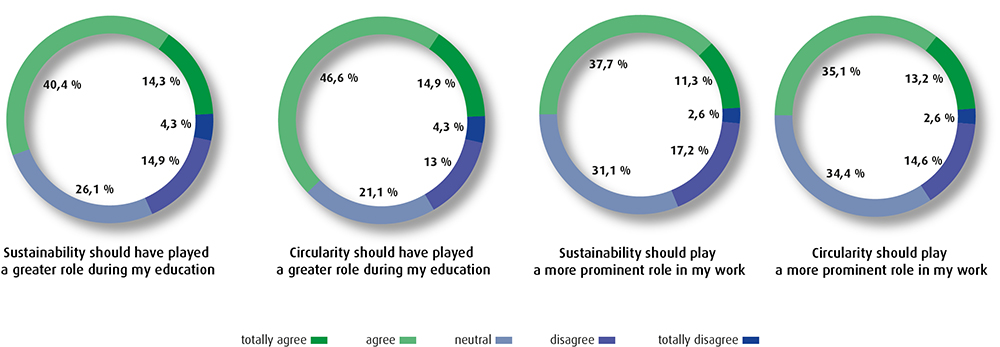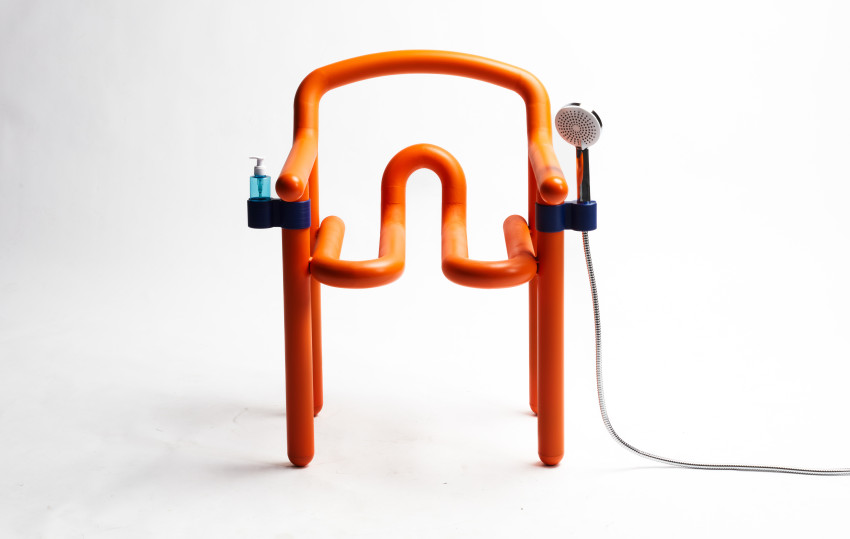
Young engineers opt for sustainable and circular
Sustainable energy and circularity must play a larger role in the work of young engineers than is currently the case. That was the conclusion of a questionnaire by the Royal Dutch Institute of Engineers (KIVI). 'Young professionals feel a strong need to do something good for Mother Nature.'
Young engineers (under 35) believe that they currently pay insufficient attention to sustainability and circularity at work. Of the 160 respondents – representative for the young professionals – 38% claims to be hardly involved in sustainability or even not at all, while this is 54%, slightly more than half, when it comes to circularity. The results of the questionnaire were published in the latest edition of De Ingenieur.
Optimistic for the future

There is a clear desire to be more green at work, according to nearly half of young engineers when asked about the two aspects (49% for sustainability and 48% for circularity). The percentage that has no such desire is 20% for sustainability and 17% for circularity. At the same time, there is optimism about the future: young engineers believe both subjects will be given increased attention.
 'There is a strong correlation between the desire for extra sustainability and circularity and the expectation that this will indeed occur,' explains ir. Daniël Poolen of KIVI. 'This means that it is a subject of interest at work, and also that the company or government institutions must comply with that desire in order to safeguard the motivation and commitment of the engineers. One respondent expressed it as follows: 'I would have loved to have been more involved with sustainability and circularity, but searched unsuccessfully for such a job for six months. There simply aren't enough good, interesting jobs.'
'There is a strong correlation between the desire for extra sustainability and circularity and the expectation that this will indeed occur,' explains ir. Daniël Poolen of KIVI. 'This means that it is a subject of interest at work, and also that the company or government institutions must comply with that desire in order to safeguard the motivation and commitment of the engineers. One respondent expressed it as follows: 'I would have loved to have been more involved with sustainability and circularity, but searched unsuccessfully for such a job for six months. There simply aren't enough good, interesting jobs.'
Sectors which are being coloured extremely 'green' are chemicals and energy, whereby sustainability scores better than circularity. IT, education and industrial design clearly score less than average when it comes to involvement with sustainability and circularity at work.
Shortcoming in education
The young engineers were also asked whether sufficient attention was paid to sustainability and circularity during their education. 80% of the respondents replied that these issues were dealt with in college courses, lectures or study projects. Yet not satisfactorily so, especially in the case of circularity. 58% of the respondents found that circularity played little or no role at all in their education, while this was 32% for sustainability. There was great room for improvement, according to 62%, for circularity and 55% for sustainability.

'The results of the questionnaire confirm a problem which has been brewing at universities and particularly at universities of applied sciences for many years,' says Poolen. 'There's a lack of sound courses dealing with sustainability and circularity. Young professionals not only feel a strong need to do something good for Mother Nature, but society itself also simply requires engineers to be involved in such themes.'
I learned more in the us
One of the respondents commented rather strikingly as follows: 'I couldn't help noticing when studying at Delft University of Technology, that the courses dealing with sustainability were optional. They certainly didn't make it easy for you to gain certification in such a subject. While studying at the American University of North Carolina in Charlotte on the other hand, I was bombarded with compulsory courses on sustainability. I learned more about sustainability during my short stay in the US than I did in the Netherlands at Avans University of Applied Sciences (2005-2009, Tilburg), the Academy of Architecture (2008, Rotterdam) and Delft University of Technology (2009-2013) all together. That's pretty disappointing for a country that claims to have a knowledge economy.'
Shell less popular as employer
The picture painted by the questionnaire was confirmed this week by a publication in the Het Financieele Dagblad financial newspaper. It stated that within a couple of years, oil and gas company Shell has dropped in popularity from third to sixth place as favourite employer among Delft University of Technology students. 'Many technical professionals no longer wish to be associated with this type of company. You're not contributing to a better, more sustainable world,' the newspaper quoted a headhunter of Page Group Nederland. In that same newspaper, honours graduate in mechanical engineering, Michel Bots, says: 'Shell is more of an inhibitor than a driving force in the energy transition process. That makes it less interesting for me as a company'.
If you found this article interesting, subscribe for free to our weekly newsletter!






